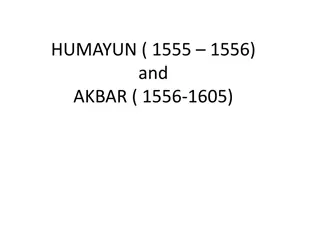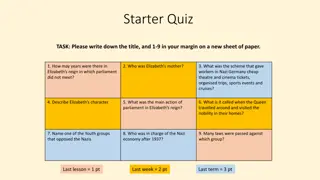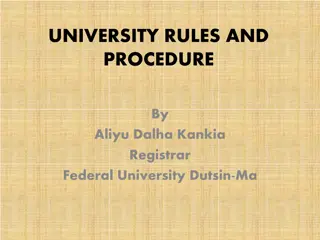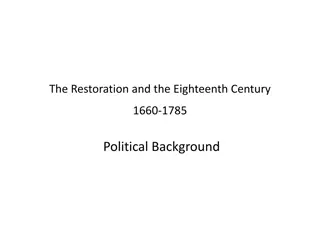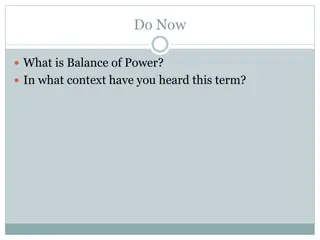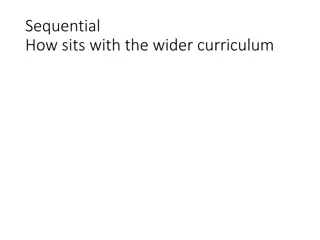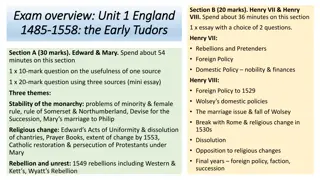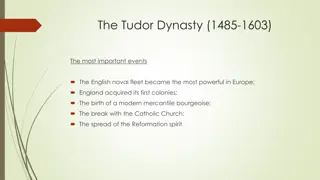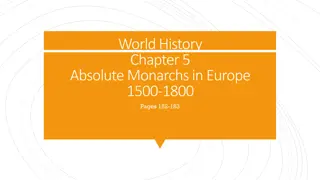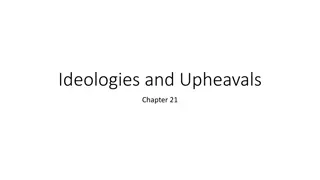The Mughal Emperors Humayun and Akbar: A Legacy of Conquest and Diplomacy
Humayun, though not a skilled general, was kind and learned, while Akbar, one of the greatest monarchs of India, expanded the Mughal Empire through military conquests and strategic alliances with the Rajputs. Akbar's policy of religious tolerance and Rajput integration left a lasting impact on the M
0 views • 21 slides
Challenges Faced by Female Rulers in History
The challenges encountered by female rulers in history, like Queen Elizabeth I, are explored in this content. From societal attitudes towards women in Tudor times to the pressures to marry and produce heirs, the struggles faced by female monarchs are highlighted. The content delves into historical e
0 views • 10 slides
Evolution of Universities in Europe: A Historical Perspective
Here, we delve into the origins and development of universities in Europe, tracing back to the Middle Ages when institutions of higher learning emerged under various influences such as the Catholic Church and monarchs. The discussion highlights the transformation of cathedral schools into the first
1 views • 14 slides
England in the Restoration and Eighteenth Century: Political Evolution and Social Transition
Following years of civil wars and revolution, England saw significant political shifts from the Restoration period in the 1660s to the Eighteenth Century. The monarchy was restored, leading to the emergence of Whig and Tory political factions, battles for religious dominance, and the growth of Briti
1 views • 14 slides
Understanding Balance of Power in 18th Century Europe
Balance of power in 18th-century Europe was a concept where great powers aimed to maintain equilibrium to prevent one nation from becoming too powerful. This balance was evident in events like the War of the Austrian Succession and the Diplomatic Revolution of 1756, which reshaped alliances and riva
0 views • 13 slides
Exploring Changes Through British Monarchs
Delve into how Britain has evolved under different kings and queens, from Queen Victoria to Queen Elizabeth. The national curriculum requirements for KS1 and KS2 focus on significant individuals in history and the changing power of monarchs post-1066. Students will learn about coronations, lifestyle
0 views • 5 slides
Religious and Social Conflicts Fueling the Rise of Absolutism in Europe
Social, economic, and religious conflicts in Europe played a significant role in the emergence of absolutism where monarchs wielded supreme power without sharing it with legislative bodies. Events like Spain's religious conflicts, Protestantism in England, the Spanish Armada, religious conflict in t
0 views • 10 slides
Tudor Rule: Challenges and Policies of Henry VII and Henry VIII
The Tudor monarchs, Henry VII and Henry VIII, faced various challenges such as rebellions, foreign policy issues, financial management, and religious changes. This content explores the threats to Henry's rule from Yorkist challenges, the success of Henry VII's financial policies, handling of the nob
0 views • 11 slides
The Tudor Dynasty (1485-1603): Key Events and Figures
The Tudor Dynasty (1485-1603) marked significant events in English history, including the rise of the powerful English naval fleet, acquisition of colonies, birth of the mercantile bourgeoisie, break with the Catholic Church, and spread of the Reformation spirit. Economic changes saw the transition
0 views • 5 slides
Explore the Beauty of Butterfly Gardens in Your Backyard Oasis
Immerse yourself in the enchanting world of butterfly gardens with a variety of common butterflies, captivating life cycles, and a plethora of colorful plants to attract these delicate creatures. Discover the wonder of butterfly eggs, chrysalises, and caterpillars, alongside popular species like Zeb
0 views • 5 slides
Causes of the French Revolution and Economic Factors Leading to Unrest
The French Revolution was fueled by a combination of political, social, and economic factors. Political causes included royal incompetence, denial of voice in government, and unpopular monarchs like King Louis XVI and Marie Antoinette. Social causes stemmed from the vast inequality among the three e
0 views • 14 slides
Absolute Monarchs in Europe: Philip II of Spain
Explore the reign of Philip II of Spain, a powerful absolute monarch during the 16th century. Discover how Philip's leadership, religious zeal, and aggressive policies shaped Spain's empire and European politics. Learn about Spain's wealth from American mines, military strength, and conflicts with P
0 views • 38 slides
The Enlightenment and Absolutism: Key Concepts and Figures
The period saw significant developments, including the Scientific Revolution emphasizing reason and systematic observation, leading to the expansion of scientific knowledge. Absolutism showcased monarchs' control, like Peter the Great's westernization of Russia and Louis XIV's Palace of Versailles.
0 views • 22 slides
Ideologies and Upheavals: Congress of Vienna and Impact
The Congress of Vienna, a gathering of key European powers, aimed to establish lasting peace after Napoleon's defeat. Key agreements included territorial compensation, restoration of monarchs, and the formation of the Holy Alliance. While successful in preventing major wars, the Congress lacked fore
0 views • 19 slides
